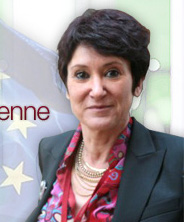SCCR 21: Initial impressions from day 1
The 21st session of the WIPO Standing Committee on Copyright and Related Rights (SCCR) commenced its work at 10:33 AM on Monday, 8 November 2010.
This unusually quick start is perhaps indicative of Member States’ commitment to examine the three substantive agenda items up for consideration during this five day negotiation; these three issues include: 1) protection of broadcasting organizations, 2) protection of audiovisual performances and 3) limitations and exceptions.

 Michèle Rivasi, a Member of the European Parliament, representing South East France for The Greens, has asked the European Commission: “Given the possible impacts of the inclusion of patents the agreement on access to medicines and on innovation, would the Commission consider accepting the exclusion of patents from the agreement as proposed by a number of ACTA negotiating parties?” The full text of her question follows:
Michèle Rivasi, a Member of the European Parliament, representing South East France for The Greens, has asked the European Commission: “Given the possible impacts of the inclusion of patents the agreement on access to medicines and on innovation, would the Commission consider accepting the exclusion of patents from the agreement as proposed by a number of ACTA negotiating parties?” The full text of her question follows: